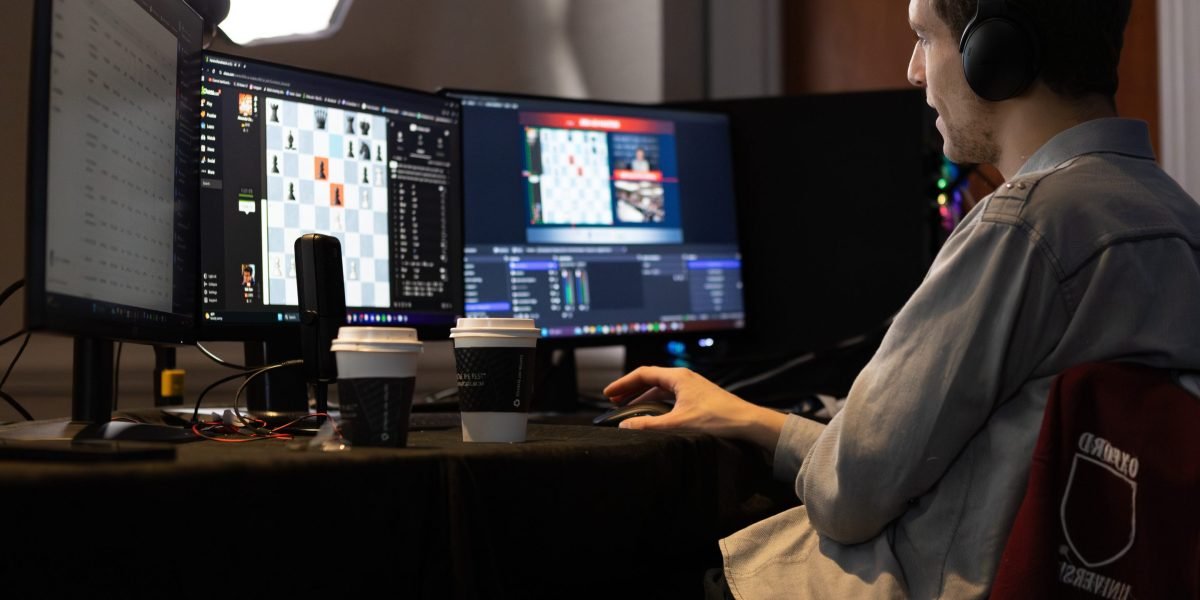
‘I feel like if I start doing well, people assume the worst intentions’: Chess grandmaster shaken up by cheating allegations shortly before his sudden death aged 29

Daniil Naroditsky, 29, is the standard-bearer for the world of competitive rapid chess that has thrived in the COVID-19 pandemic. He died over the weekend He leaves behind a legacy as one of the game’s greats who helped usher in its digital age.
The American professor won many tournaments and collected hundreds of thousands of subscribers YouTubeAnd Twitch and other platforms, where he streams matches live and explains strategy in real time. But he was also struggling with the cyberspace he helped build.
High-speed gaming has become very popular online during the pandemic, creating… chess The community quickly became filled with allegations of cheating as players gained access to sophisticated computer software that could give them an unfair advantage.
Naroditsky’s sudden death highlighted a dark side of the game that fellow professionals say brought undue hostility to the chess star in his final months.
Narodetsky was accused of cheating, and these accusations, which were never proven, had a major impact. Ukrainian grandmaster Oleksandr Bortnik, a rival and friend of Narodetsky, was worried and went to check on him on Sunday. Bortnik recounted during an emotional livestream on Monday that he and his friend found Naroditsky, known to many as Danya, unresponsive on the couch in his home in North Carolina.
The cause of death was not announced.
“Danja was not only a wonderful master, but also a tireless ambassador for chess, and above all – a truly kind, compassionate and good person,” said Arkady Dvorkovich, President of the FIDE.
Heritage of integrity
The unfounded cheating allegations came from Russian grandmaster and former world chess champion Vladimir Kramnik, whom Narodetsky described as one of the “heroes” he looked up to as a child.
Naroditsky denied the allegations because he excelled at blitz chess and chess, where players have only minutes to finish intense matches.
“Since the Kramnik case, I feel like if you start doing well, people assume the worst intentions,” Naroditsky said Saturday in the last live broadcast he filmed before his death. “It’s just a matter of the residual effect it has.”
He reflected on his legacy and hoped other top players would trust that he played fairly.
Since then, chess professionals from around the world have praised Narodetsky as an honorable player who used his online platform to make chess more accessible. His family said in a statement that they hope people will remember him for the joy and inspiration he brought to people.
Meanwhile, professors criticized Kramnik on social media for the way he treated Narodetsky. American grandmaster Hikaru Nakamura went on an expletive-laced rant in his latest live broadcast, and Indian grandmaster Nihal Sarin accused the Russian pro of trying to ruin Narodetsky’s life in a post on X.
Kramnik continued to post about Narodetsky on the day his death was announced, calling it a tragedy and speculating on the cause.
Narodetsky became a Grandmaster, the highest title in chess except World Chess Champion, at the age of 18. He has consistently been ranked among the world’s top 200 players in traditional chess and was among the top 25 players in blitz chess, winning the US National Championship in August. He spent most of his time coaching young players.
“Daniel was an amazing teacher and explainer of chess, concepts and ideas,” said Daniel Weisbarth, renowned chess coach and co-owner of Silver Knights Chess Academy in Virginia.
Blame game
Several professionals this week called for an end to the constant finger-pointing that seems to follow players like Naroditsky who have thrived in fast-paced play.
The opportunity to cheat has exploded as the mental sport has moved online, said Kenneth Regan, international chess master and computer science professor at the University at Buffalo. There are ways to monitor the game online, but Regan said they are intrusive.
“The rate of online fraud is 100 to 200 times higher than the general rate,” Regan said. “From my perspective, there are five to 10 cases presented every year.”
Popular online chess server Chess.com shut down Kramnik’s blog on the site in 2023, saying he used it to spread unsubstantiated cheating allegations about “dozens of players.” The platform then warned of Kramnik’s “escalating attacks” against some of the most respected members of the chess community and some promising young talents.
The fast-paced style of play common in the digital chess arena is based to some extent on the honor system.
Top talent analyzes the board so quickly and moves with such precision that allegations of cheating have become common. Rapid chess is so fast, Regan said, that it’s essentially “playing chess entirely with your gut.”
Nurturing young talents
Last week, Naroditsky posted a video in his popular Speedrun series on YouTube, telling viewers that he was “back, better than ever” after a brief “creative break.” Benjamin Ballas, a psychology professor at North Dakota State, said his videos, in which he gives advice and discusses strategy, have been great tools for chess players of different abilities.
“He will tell you: ‘This is the kind of mistake you will see at this level,’ and he will make mistakes too, and talk to you about how to deal with them,” Ballas said.
Nakamura is a five-time world chess champion Magnus Carlsen They also use social media to bring chess to a wider audience, increasing its popularity around the world.
“People see Daniel or other streamers and start playing chess online,” said John Hartman, editor-in-chief of Chess Life magazine. “Flowing characters, leading people into the world of chess.”
Carlsen credited Naroditsky for his work on live streaming, saying he was “a great resource for the chess community.”













Post Comment